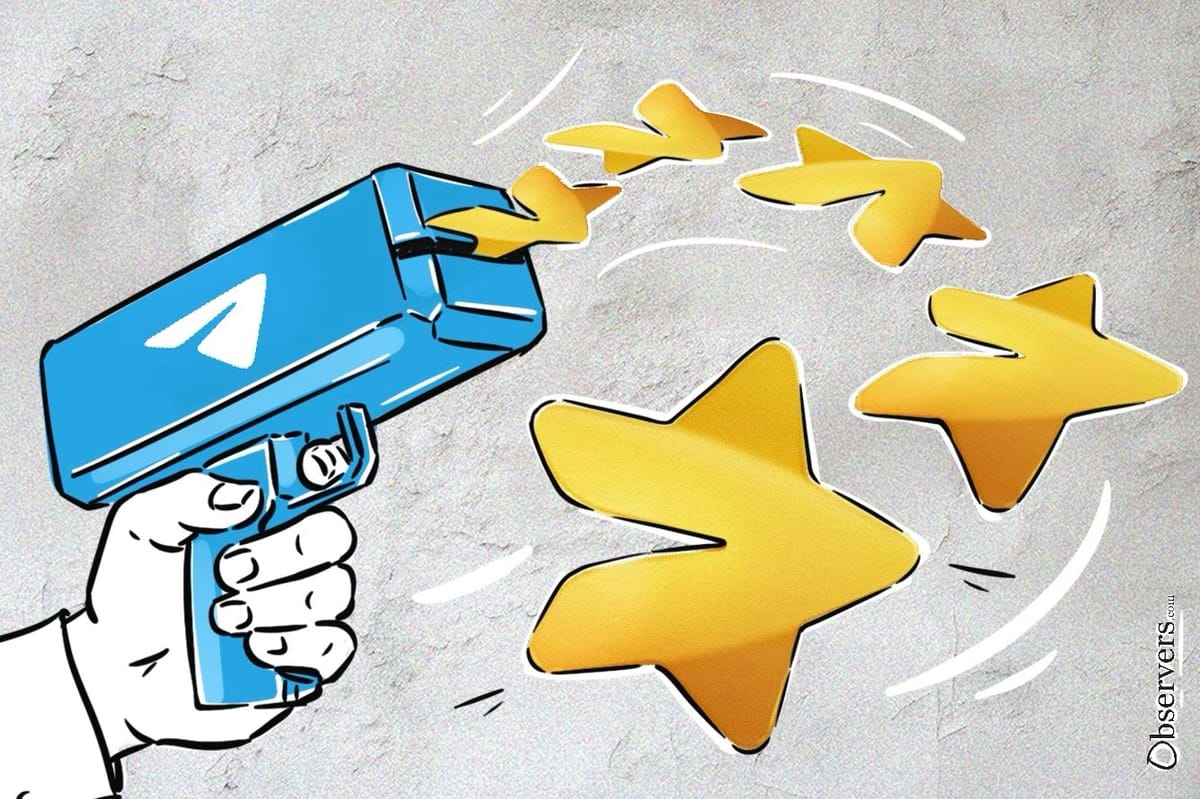
Telegram Stars, new virtual items introduced this week, will allow developers to sell digital goods and services, including items in games, via bots and mini-apps. All bot owners were informed that from June 12, all payments for digital goods and services will be carried out exclusively in Telegram Stars.
The team also promised to introduce more features. Soon, sellers will be able to withdraw earned Stars in TON via Fragment, a platform primarily used by the community to buy and sell Telegram usernames. It is unclear if users will also be able to ‘return’ unneeded coins. Later, Stars can also be used to reward creators for their content.
Stars can be bought through in-app purchases via Apple and Google (with 30% commission) or via @PremiumBot, which used to sell only premium subscriptions. The second option apparently targets Russia-based users who face difficulties with the Apple payment system. The desktop version also allows buying Stars directly from a bank card with no commission.
The first app to offer digital goods for Stars was Durger King, which sells fictional fast food. A special cake is available for one Star. After settling the purchase, the bot returns payment to the user’s Star balance because it says, "the cake is a lie.” Still, the cake promoted in the official announcement is a wise marketing trick as the minimum purchase of Stars is 50 ($1.33 of which $0.33 is Apple commission).
Since 2017, it has been possible to pay for physical goods without leaving the messenger with all the standard payment methods. Telegram users can also pay for goods and services on the app with cryptocurrency. This update allows the selling of digital goods. Although a short survey has shown that built-in physical goods shops are not among the most popular features, the boom of mini-apps that imply the sale of various boosters and items apparently pushed the messenger to provide 400 million users interacting with bots every month, with comfortable payment methods.
So far, the developers have given positive feedback on the feature, outlining its ease of implementation compared to standard payment integration. Still, by the time of writing, very few apps had introduced the new payment method. Durov added that Telegram will subsidize ads purchased with Telegram Stars for about the commission charged by Apple or Google. Thus, it makes more sense for developers to reinvest Stars in promoting their app, while the users won’t benefit from this offer.
Apart from attracting developers to the ecosystem, Stars were introduced to address compliance issues. They were allegedly launched to comply with Apple's updated payment terms for digital goods, as the platform's native TON cannot be used this way due to its blockchain nature.
Durov first promised to introduce the feature at Token2049 in Dubai this April, alongside the announcement of a new shared ad revenue model details and tokenized stickers. Back then, he promised that soon, any merchant with no coding skills would be able to set up the store on Telegram and receive payments via blockchain.
Other major messaging platforms currently offer no in-app currency and do not sell digital goods, although WhatsApp allows the creation of built-in shops. A possible future competitor from the decentralized world, Farcaster, uses so-called Warps in its mobile client. Wraps can also be bought via the Apple Store and are used to perform various actions on the platform.
All in all, Telegram Stars is a promising feature that could significantly enhance the platform's monetization and user engagement capabilities while remaining compliant. The boom of mini-games represents the most suitable moment for introducing the feature.

